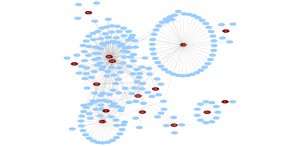Genomics and AI push the boundary of precision medicine in blood cancer

Every nine minutes, someone in the US dies from blood cancer which accounts for about 10 percent of all cancer deaths. And, every three minutes, one person in the US is diagnosed with a blood cancer—about 170,000 people annually. In 2017, 62,130 people were expected to be diagnosed with leukemia. These numbers are staggering, and scientists do not fully understand the causes of the disease.
The genomic revolution stands poised to provide a peek at the human genome, the basic biological building blocks of, not just one, but an unprecedented number of individuals. But first we need to understand how large the genome of a single individual is. If you assume that the current state-of-the-art gene panel is the length of New York city marathon, then an individual's genome is the length of the diameter of the sun. It is therefore easy to grasp that, for the first time in the course of history, our prowess to measure and gather biological data has outpaced our ability to understand it.
To help unlock some of the secrets hidden in the human genome, IBM and the Munich Leukemia Laboratory (MLL) announced earlier this year that we are currently working together on a project that intends to analyze genomic data that will include whole genome sequencing (WGS) and transcriptome sequencing (RNASeq) in at least 5,000 cases of patients with leukemia.
Blood disorders are one area of research in which genomics holds considerable promise. Every year, clinicians, pathologist, researchers of hematology from around the world descend at the meeting of the American Society of Hematology (ASH). ASH is the largest and most prestigious conference where the world's newest results and trends in hematology are unveiled. This year, 26,000 participants congregated in Atlanta, braving the bizarre snowstorm that paralyzed the city for days. MLL and IBM presented at the conference, proposing the melding of AI with subject matter expertise in genomics and bioinformatics to accelerate precision medicine in hematologic malignancies. The promising outcomes suggest that forging AI with genomics will not just propel precision medicine forward, but also lead to new insights and discoveries.
AI has penetrated our lives through smartphones, IoTs and driverless cars, so it is only natural to invite AI into the labs of ASH participants. Our initial research has been to demonstrate that agnostic genomic AI approaches can be validated, meaning we can prove these systems work by testing it against things we already know. As a first step, we've been able to prove that these AI approaches can identify genes already known to be implicated in certain sub-types of blood cancer (such as gene JAK2 in ET and PMF subtypes, ASXL1 in aCML and CMML, KIT in SM-AHN and SM subtypes of blood cancer).
Moving beyond validating AI approaches, we are identifying indicators of disease subtypes from non-gene parts of the genome.
As we continue our partnership and research, the promise of AI—combined with genomic and bioinformatics—could offer clinicians new insights and understanding into devastating diseases like leukemia.
















